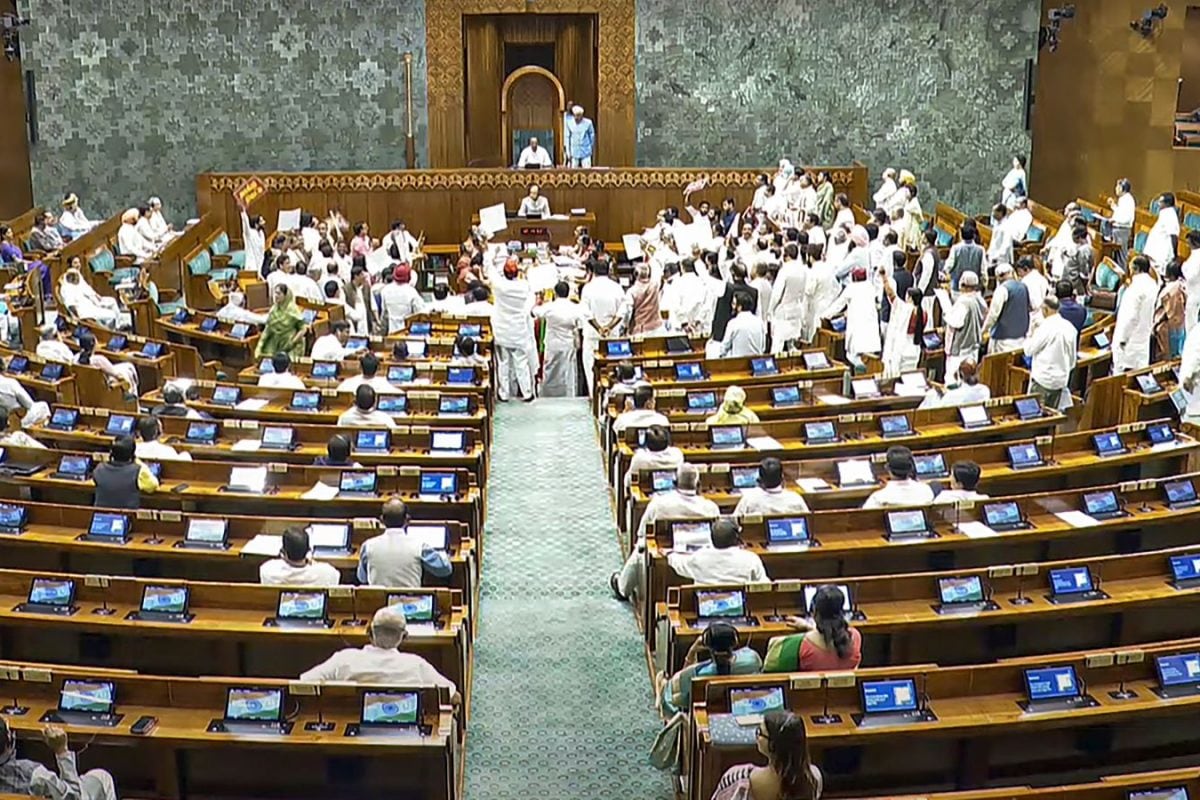

The Indian Parliament's Monsoon Session has been marked by intense debates and disruptions, particularly concerning the Special Intensive Revision (SIR) of electoral rolls in Bihar. Amidst the opposition's uproar over the Bihar SIR, several important bills have been passed in both the Lok Sabha and Rajya Sabha.
One of the most discussed developments was Union Home Minister Amit Shah's introduction of three significant bills in the Lok Sabha. These include The Constitution (One Hundred and Thirtieth Amendment) Bill, 2025, The Government of Union Territories (Amendment) Bill, 2025, and The Jammu and Kashmir Reorganisation (Amendment) Bill, 2025. The Constitution (One Hundred and Thirtieth Amendment) Bill, 2025, aims to remove a Central or State Minister, including the Prime Minister or Chief Minister, if they face allegations of corruption or serious offenses and are detained for at least 30 days.
These bills have faced strong opposition, with some members tearing and throwing copies of the bills towards Amit Shah in the Lok Sabha. Critics argue that the bills are "destructive of the basic structure of the Constitution" and could be used to destabilize governments. Shashi Tharoor, a Congress leader, expressed a differing view, stating that if someone spends 30 days in jail, they should not continue as a minister. Due to the controversy, these bills have been referred to a Joint Committee of Parliament for review. The committee will consist of 21 members from the Lok Sabha and 10 from the Rajya Sabha and is expected to submit its report by the first week of the next session.
Despite the disruptions, the Lok Sabha has passed The Promotion and Regulation of Online Gaming Bill, 2025. Union Minister Ashwini Vaishnaw emphasized the importance of this legislation, citing concerns over addiction, suicides, and social evils associated with real money gaming. He also argued that such gaming contributes to money laundering and supports terrorism.
The Rajya Sabha has also been productive, passing The Indian Institutes of Management (Amendment) Bill, 2025, which aims to establish a new IIM in Guwahati, Assam. Additionally, The Mines and Minerals (Development and Regulation) Amendment Bill, 2025, was passed in the Rajya Sabha. This bill seeks to liberalize and modernize the mineral sector, emphasizing critical and strategic minerals. It renames the National Mineral Exploration Trust to the National Mineral Exploration and Development Trust and expands its mandate and funding.
The opposition's protests have largely revolved around the Special Intensive Revision (SIR) of electoral rolls in Bihar. Opposition parties allege that the SIR is being used to suppress voters and manipulate the electoral process. They have demanded a discussion on the matter, disrupting parliamentary proceedings and staging walkouts. The Election Commission, however, defends the SIR as essential for accurate electoral rolls, citing the discovery of deceased, shifted, and duplicate voters.
Despite the opposition's concerns, the government has insisted that the SIR is a routine revision and accused the opposition of stalling parliamentary business. The Speaker of the Lok Sabha has repeatedly urged members to maintain the dignity of the House and cooperate in its functioning.